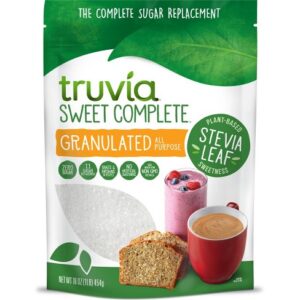If you look closely at the ingredient labels on the food items in your pantry, you will likely find a wide range of food additives. While some additives are generally safe and pose minimal risks to most individuals, others have been associated with negative health effects and are best avoided. In this article, we will briefly cover which food additives to avoid when possible.
What Are Food Additives?
Food additives are substances added to our foods to enhance their taste, appearance, shelf life, and sometimes quality. They are vital in preventing foodborne illnesses, enabling food transportation to remote areas, and helping to lower costs for mass production. While they play a vital role in the foods we consume, it’s essential to recognize that not all food additives are created equal. In fact, some food additives should be limited or even removed from consumption.
Here are seven food additives you should avoid:
1) Artificial Food Coloring
Artificial food coloring is commonly used to brighten and enhance the appearance of various foods, like candies. It’s a popular way to enhance the visual appeal of dishes, making them more enticing.

Health Effects of Artificial Food Coloring:
Specific artificial food dyes, such as Yellow 5, Yellow 6, Red 40, and Blue 1, have been linked with allergic reactions in some individuals. Excessive consumption has been shown to contribute to hyperactivity in sensitive children and may be linked to ADHD.
Some food dyes like Red 40 contain benzene which is a known carcinogen that has been shown to promote tumor growth in animal studies. More research is needed to fully assess their impact on humans.
To make healthier choices, limit your intake of artificially colored processed foods and opt for naturally colorful whole foods.
2) Sodium Nitrite
Sodium Nitrite is commonly found in processed meats such as deli meat, canned tuna, and sausages. It is a preservative that helps prevent bacterial growth.

Health Effects of Sodium Nitrite
Too much consumption of sodium nitrite has been linked to bladder cancer and other health problems. When exposed to heat, nitrites can convert into nitrosamines which are also known carcinogens. Because of this, you should do your best to reduce your consumption of processed meats when possible.
3) High Fructose Corn Syrup (HFCS)
HFCS is a highly-refined artificial sweetener derived from corn. It is found in most processed foods like processed bread, flavored yogurt, candy, salad dressings, cereals, soda, juice, candy, breakfast cereals, and canned vegetables.
Health Effects of HFCS:
Consuming HFCS excessively can lead to weight gain, increased LDL (“bad”) cholesterol levels, the development of diabetes, and overall inflammation. The inflammatory effects of HFCS may cause worsening symptoms for those with such conditions as arthritis, gout, or autoimmune conditions like lupus or rheumatoid arthritis.
Studies have shown that high-fructose corn syrup can contribute to belly fat accumulation which can be an issue for those trying to lose weight. Because of this, you should avoid regular consumption of snacks and foods containing high fructose corn syrup.
Ideally, you should eliminate or limit your consumption of any sugary sweeteners as many have been linked to a number of deleterious health effects. However, if you do consume sweeteners you should do so in moderation and consider using natural sweeteners like raw sugar, honey, dates, agave, or maple syrup. Unfortunately, however, not all natural sweeteners are considered compltely safe for consumption such as Stevia and Monk Fruit.
4) Stevia, Truvia, Monk Fruit
Stevia, Truvia, and Monk Fruit are popular natural sweeteners that many people use as alternatives to sugar in their baking and beverages.
Stevia is a natural sweetener derived from the plant Stevia Rebaudiana.
Truvia is a commercially produced product from multinational corporations Coca-Cola and Cargill Inc. Because it is derived from Stevia, those corporations have deemed it a natural sweetener.
Monk Fruit is a plant native to Southern China with a sweetness 250 x that of table sugar.

Health Effects of Stevia, Truvia, Monk Fruit:
Recent studies have raised concerns about the specific sugar replacement in products like Monk Fruit, Stevia, and Truvia. One sugar replacement, erythritol, found in these sweeteners, has been associated with stroke, blood clotting, and heart attack. Moreover, Stevia may cause side effects like bloating, nausea, and gas.
5) Sodium Benzoate
Sodium benzoate is a commonly used preservative in salad dressings, pickles, carbonated beverages, and fruit juices. It helps prevent spoilage and fungal growth in meat-related food items like packaged meats.
Health Effects of Sodium Benzoate:
While the FDA generally recognizes sodium benzoate as safe, studies have highlighted some significant side effects. For instance, merging sodium benzoate with artificial food coloring has amplified hyperactivity in young children. Excessive intake of beverages containing this food additive was also shown to be associated with increased symptoms of ADHD in college students. Furthermore, when combined with vitamin C source, this food additive can be converted into benzene, which is associated with the risk of cancer development.
Carefully read food labels and avoid products containing ingredients like benzoic acid or benzene, particularly when combined with vitamin C sources like citric acid.
6) Trans Fats
Trans fats are found naturally in dairy products and meat from ruminant animals like cattle, sheep, and goats. They are also present in synthetic forms in processed foods such as deep-fried fast foods, margarine, and certain baked goods made with partially hydrogenated vegetable oils. These fats enhance flavor and extend the shelf life of food products.

Health Effects of Trans Fats:
Numerous studies have shown that trans fats increase LDL cholesterol (“bad” cholesterol) levels while decreasing HDL cholesterol (“good” cholesterol) levels. This imbalance in cholesterol levels increases the risk of heart attacks, heart disease, and strokes. Trans fats are also associated with increased inflammation and diabetes.
To reduce your intake of trans fats, minimize your consumption of processed foods that contain partially hydrogenated oils such as processed chips, cookies, cakes, pastries, margarine, crackers, and fast foods. Our motto is, if it comes in a bag and you can pop it open and eat it on the go then it most likely has trans fats.
Consider healthier alternatives like whole foods, freshly baked goods, natural fats like butter, and olive or coconut oil.
7) BHA/BHT
Butylated hydroxyanisole (BHA) and butylated hydroxytoluene (BHT) are artificial antioxidants obtained from petroleum. They are widely used as preservatives in various food items, such as cereals, potato chips, chewing gum, and many vegetable oils. The main function of BHA and BHT is to safeguard against color alterations, flavor deterioration, and food spoilage.
Health Effects of BHA/BHT:
Studies have shown that BHA and BHT affect the brain’s neurological system and alters behavior. While these additives are considered antioxidants, they have been shown to form reactive compounds in the body that may actually be carcinogenic.
To minimize exposure to these additives, prioritize whole, unprocessed foods and read food labels carefully.
Tips for Avoiding Unhealthy Food Additives
Here are some practical tips to help you avoid harmful food additives and make informed choices.
1) Prioritize Freshness:
Choose fresh foods in their natural form and vibrant hues and colors. Explore the option of going to your nearby farmer’s market or subscribing to CSA (community-supported agriculture) deliveries so you can obtain fresh produce.
2) Frozen Food Can Be a Good Option:
If fresh foods are not available, frozen fruits and vegetables can be a nutritious alternative. Look for options without any additives or preservatives.
3) Read Food Labels:
Before adding a product to your grocery cart, take a moment to read the ingredient list. Avoid purchasing items with known additives, and be cautious of ingredients that are difficult to pronounce or understand.
The Bottom Line
When making healthy choices in your diet, it’s important to understand that you can’t always avoid certain foods. Processed foods and food additives are vital for food production and storage. They are everywhere and will be staples in the American diet for the foreseeable future. Eating a processed cookie or potato chip from time to time likely won’t cause much harm. However, you should be aware of what food additives you are eating and how often you are eating them so that you can limit your exposure to harmful additives.
While the Food and Drug Administration (FDA) tries to carefully evaluate and regulate these additives, it is vital that you do your own research in finding out which food additives are safe for you and your family and which ones you should avoid.
As a general rule of thumb, always focus on high-quality natural ingredients and read the food labels when purchasing or consuming any food products.
Dr. Sergio Guiteau is a physician who is board certified in Family Practice and Sports Medicine with added certifications in Aesthetic Medicine. He specializes in Preventive Medicine, Sports Medicine, and Anti-Aging Medicine and blogs on Advancedrejuv.com/blog

